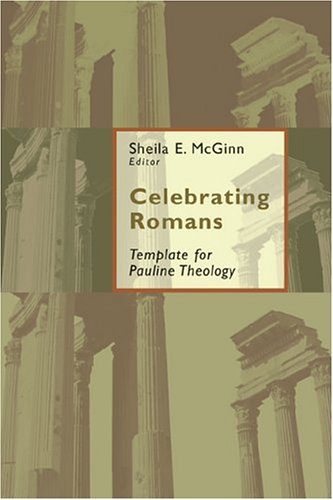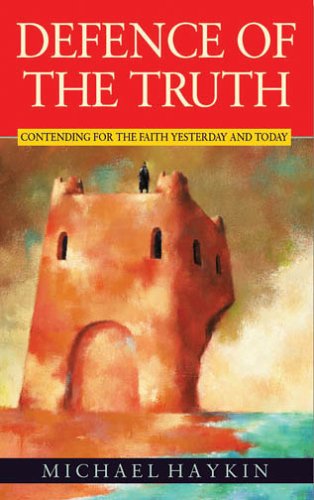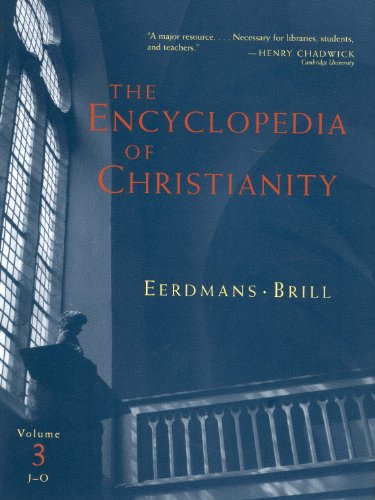Volume 31 - Issue 3
Surprise, the Essential Nature of Grace
By Robbie F. CastlemanOne rather delightful consequence of writing this column for each issue of Themelios is that I get mail. By ‘snail mail’ or ‘e-mail’, it is not unusual for me to hear from readers of our journal about something I have contributed that they want to respond to, know more about or just appreciate. I have made a commitment to steward this interest as best as I can and reply personally to each writer.
I had started ‘The Last Word’ for this issue when I received an e-mail from a fellow professor at another institution in the States who asked me a question I had to think about and ponder prayerfully for several days before I sent my response. It was one of those questions that make you not just think, but wonder about. The question was prompted by my column titled ‘Joy, the Gigantic Secret’ (30.3) where I commented on the humour and life and writings of G. K. Chesterton. The reader asked, ‘How do you come to that place of experiencing joy in the Christian life like that?’ I just sat there and my first thought was, I have no idea. I thought this, not because my life lacks a measure of joy, but because I had never thought about how I have arrived at the place where I really do. So, I took some time to think about this, and what I learned surprised me.
I tried to recall the most joy-filled people I have known. I first thought of ‘The Hamiltons’. This older couple had served with my husband’s mother as missionaries in China and my husband and I would go out of our way during any trip near Atlanta, Georgia to spend even 30 minutes with Ham and Estelle. Two things about them always challenged and encouraged us. They were absolutely still in love with each other after 50 plus years of married life; and they were just full of gratitude for everything. Shared love and thankfulness marked their lives deeply. We would leave their home after a short, or lingering, visit and there would be embedded in our own hearts and between us what the Scripture must mean by the ‘Joy of the Lord’. The effect of the Hamiltons on us is still too ineffable to fully describe—which, of course, is a tell-tale sign of grace. When we suspected that a certain visit might be our last, due to their advancing years, we asked if we could begin to use the salutation they used in letters for our own correspondence with friends. They always ended personal notes or multiple-recipient prayer-letters with the salutation ‘In His Glad Service’. And that was it. The Hamiltons considered a life-time of Kingdom service as gladsome.
What surprised me in recalling their friendship so vividly was also remembering that this ‘glad service’ was also full of heartbreak, sorrow and suffering in a lifetime on the mission field. In thinking this through for the colleague who had written about the column, I realized this was also true of G. K. Chesterton’s life. He wrote love poems to his wife throughout their married life, but various biographers have suspected that their marriage was never consummated due to some physical, and possibly emotional, problem connected with Frances’ health. I thought about the most ‘joyful’ people I’ve known and not one of them lived the ‘easy life’. But they loved extravagantly and expressed gratitude with ease.
I wonder if it’s because people like this have a capacity for joy because they take themselves less seriously and laugh and love well because they take the gospel that bears the suffering of life so seriously. Chesterton hints at this when he muses, ‘It is absolutely useless and absurd to tell a man that he must not joke about sacred subjects. It is useless and absurd for a simple reason: because there are no subjects that are not sacred’ (Lunacy and Letters). In recognizing the overarching reality of Divine Lordship, one can begin to see that everything, no matter its darkness or light, its burden or ease, has the potential for the surprise of Grace which is Joy.
C. S. Lewis betrays this understanding in the title of his autobiography, Surprised by Joy. Joy must be a surprise if it is a manifestation of Grace. If it’s not surprising, then how can it be Gift? If one aims for joy, plans for joy, expects joy, we’re bound to miss it or be disappointed. Joy must be the grace of aiming at something else. I think Joy is the grace that comes from suffering with Christ in ‘His Glad Service’. It’s one more way to understand the sobering invitation of the Lord Jesus that gives way to a life marked with fullness, found-ness, joyfulness. ‘Those who love their life, lose it, and those who hate their life in this world will keep it … whoever serves me must follow me, and where I am, there will my servant be also’ (John 12:25–26). Indeed sprinkled through the Upper Room Discourse is the promise of Joy’s fullness through suffering and obedience.
It is interesting that Paul’s epistle to Philippians reminds us to ‘Rejoice in the Lord and again I say rejoice’ and it is the same epistle that asks us to have the ‘same mind in ourselves that was in Christ Jesus’ that leads to the self-emptying life. Paul mentions joy several times in Philippians, because he is not altogether happy in the marginalization of imprisonment imposed upon him. No person who says I don’t know if I want to live or die—even for the Lord—is ‘happy’. But there is joy. This is the same epistle that says Epaphroditus was spared lest Paul ‘have sorrow upon sorrow’. I suppose it should come as no big surprise that when we share Christ’s suffering, we indeed share his life. Joy must be grace-given because surely it must be a gift for such a journey, for such obedience, for such hope. For Jesus, for Paul, and for you and me.
So, instead of aiming for joy in the journey, it is the hardship, burdens and disappointments of life that may be the very thing to lean into. And, in that hard place, like Paul, we will find Christ Jesus. And, by God’s grace, in that place, we will truly be surprised by Joy. May the salutation of our lives reflect the Joy knowing what it means to be ‘In his glad service’.
Robbie F. Castleman






